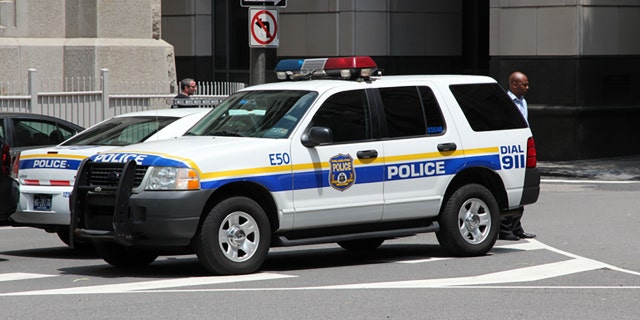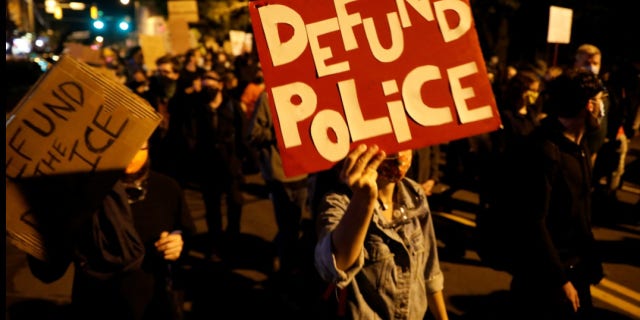NEWYou can now listen to Fox News articles!
Reforms to police traffic stop policies across the country could be contributing to a steep rise in DUI fatalities in recent years.
“You have cities that are actually banning the cops from doing car stops,” Joseph Giacalone, a retired NYPD detective sergeant and current professor at the John Jay College of Criminal Justice, told Fox News. “So what do you think is going to happen?”
According to an analysis from Zutobi, the U.S. recorded 11,654 DUI fatalities in 2020, a rise from 10,142 the year before. The rise in DUI fatalities marked the first time the U.S. crossed 11,000 since 2005 and the first rise in such deaths since 2016. The reversal comes after the U.S. had seen a steady decline in DUI deaths over the past 35 years, recording over 18,000 in 1985, over 13,000 in 2005, and just over 10,000 in 2015.
The sudden uptick has researchers concerned, and Zutobi co-founder Leo Waldenback told Fox News that the issue has reached “epidemic proportions.”
A DUI check point in Anaheim, Calif.
(istock)
“We’ve seen a massive increase in drunk driving fatalities,” Waldenback told Fox News. “We’re talking about epidemic proportions here… this is a huge issue in America and much higher than most other parts of the world.”
Waldenback said there could be several reasons for the increase, including an uptick in alcohol consumption as much of the country shut down in response to the COVID-19 pandemic.
He noted that there was a large increase in alcoholic beverage sales early on in the pandemic, adding that there were also increases in loneliness and depression.
“Depression, because people have been home for a long time,” Waldenback said, adding that “2020 was not a fun year for anyone, so maybe more people took to the bottle and started drinking and then were driving after that.”
VIOLENT CRIMES ON THE RISE IN 2022, FOLLOWING PREVIOUS UNPRECEDENTED SPIKE IN MURDERS
But former NYPD chief Louis Anemone told Fox News Digital that new police policies are making matters worse, saying that some new rules have made it more difficult for police to do their jobs.
“If you have 10 collisions with injuries or DUIs at a location, you should get a minimum of 100 traffic summons at that location, and you’ll drive down the number of accidents,” he said. “They have to take a proactive approach to stopping vehicles that are committing violations that are leading to these accidents.”
Anemone pointed out that the New York Police Department used to shoot for those goals under former New York City Mayor Rudy Giuliani, but now officers have been forced to take a less proactive approach to policing.
Philadelphia started the trend of pulling back on traffic stops for minor violations, opting not to conduct stops for violations such as expired vehicle registration for 60 days or less, a single brake or headlight that is broken, minor bumper damage, or using a car without an official certificate of inspection.

Philadelphia Police Ford Explorer.
(iStock)
MASSIVE INCREASE IN BLACK AMERICANS MURDERED WAS RESULT OF DEFUND POLICE MOVEMENT: EXPERTS
But not making those stops makes it less likely for police to catch other offenses, including those who may have taken the road with too much to drink.
“They’re supposed to be writing tickets. To write a ticket you have to stop the car,” Anemone said. “If there’s any sort of back-off from even stopping the car… accidents are going to rise, injuries are going to rise, and DUIs are going to rise.” Anemone said.
Philadelphia City Council Member Isaiah Thomas championed the legislation as an opportunity to combat injustices that have been “plaguing Black communities.”
Reached for comment by Fox News last month, a spokesperson for Thomas argued that the new rules were supported by a diverse group of stakeholders.
“Representatives from the Defender Association of Philadelphia, the Mayor’s Office, the Philadelphia Police Department and residents across the city have joined these conversations and been valued partners in creating this historic legislation, being replicated in municipalities across the country. Philadelphia Police will now collect data around traffic stops to ensure that we’ve reclassified the traffic stops that promote discrimination and keep the stops that promote public safety,” the spokesperson said.
Former Philadelphia Deputy Commissioner Joseph Sullivan said that the need to constantly reform policies and procedures is vital to policing, but he argued that some reforms have gone too far and made crimes such as a DUI more likely.
“I think it contributes to an increase in auto accidents,” Sullivan said of the city’s move to limit traffic stops. “I think it’s the responsibility of the police to remove those types of drivers and those types of vehicles.”

Demonstrators hold a sign reading “Defund the police.”
(REUTERS/Brendan McDermid)
Sullivan said that when police pull back on traffic stops, people are less likely to “voluntarily conform to the motor vehicle code because they are concerned about the possibility of being stopped and ticketed.
CLICK HERE TO GET THE FOX NEWS APP
Anemone also said he understands the concerns raised by some reform efforts, but he argued that some policies have gone too far and made it much more difficult for police to do their job.
“I don’t think many of these cops are engaging right now… there’s a lack of engagement,” he said, adding that a cop might not want to make as many stops or write as many tickets for fear of finding themselves in a situation that could lead them to lose their job.
“Somebody has to step up and take leadership and take ownership,” he added.